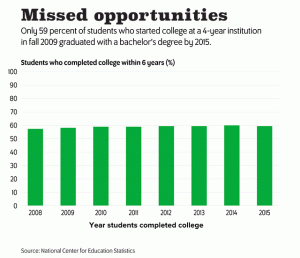
Articles
Bill and Melinda Gates’ Huge Investment in Education Falls Short
By Cait Etherington
February 14, 2018
On February 13th, billionaires Bill and Melinda Gates released their annual open letter. In the letter, they not only shared figures about how much they continue to invest in education and health care both in the United States and around the world but also reflect on what is and is not working about their ambitious philanthropic mandate. Surprisingly, in contrast to many previous letters, this year’s letter did not directly address educational technologies or online learning but the letter did admit that despite some small gains, the foundation’s educational efforts may be falling short, especially in the United States.
Background on the Gates Foundation
The Bill and Melinda Gates Foundation was established in 2000, and education has been a key part of the foundation’s mandate from the onset. Indeed, in the United States the foundation’s work has long focused on education, libraries, and access to the Internet, as well as emergency relief and community grants. While the Gates had high hopes when they started their foundation, over time, their investment in education, at least in the United States, has generated more controversy than real results.
Big Investments and Notable Shortfalls
As stated in their 2018 letter, the Gates Foundation is currently investing about $500 million a year in the United States, primarily on education initiatives. By comparison, the foundation spends about $4 billion annually in developing countries both on health care initiatives and education initiatives. The Gates are quick to point out, however, that they want to do more.
Since the Gates Foundation was founded, it has supported myriad educational initiatives, including a major study to produce more accurate nationwide data on high school graduation rates and a series of interventions designed to raise those lagging rates. As stated in this year’s letter, however, the foundation has sought to accomplish this goal largely by building new schools.

Bill and Melinda Gates Critically Reflect on Ethics and Money









No Comments